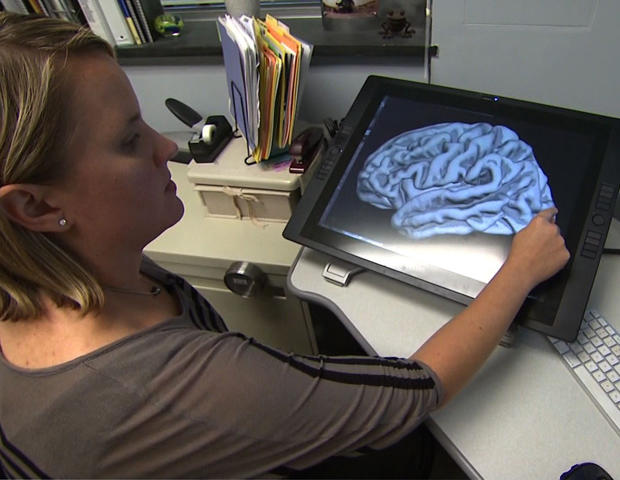How do seniors have the minds of those decades younger?
(CBS News) It is no secret that the population is aging. According to the Census Bureau, the number of Americans 85 and older has grown over the past decade from about 3 million to 5 million. Now researchers have reported an interesting discovery about a group called "super agers" who have brains and memories far younger than you'd expect.
Scientists calling all "super agers" for brain study
"Super-agers": What it takes to live beyond 100
Leonard Mattson is getting a brain scan. There's nothing wrong with this 83-year-old retired engineer. In fact, researchers want to find out why his memory is so good.
"I try to keep active," Mattson explained. "And I guess maybe it's my training. I like to communicate, I love people, so maybe that's part of it."
Mattson is what's known as a "super ager" -- a person over the age of 80 with the memory of someone 20 to 30 years younger. About 10 percent of people belong to this group.
Emily Rogalski, a neuroscientist at Northwestern University wants to know what's so special about their brains.
"Previously it's been thought that there was nowhere to go but down as we aged," she said. "So we're kind of trying to shift our thinking a little bit and say, 'Maybe it's possible to maintain optimal memory as we age. Maybe there's a different trajectory.'"
Rogalski and other researchers have found that a part of the brain called the cortex is thicker in super agers. It's the part responsible for functions like thinking, attention and memory.
"If you think of the bark of the tree," she said, "that's kind of like the cortex. the thicker the better. And the cortex of the brain is where the cells live. So when we mention the thickness of the cortex, we're getting a measure of the health of the brain. The thicker, the better.
Rogalski is now following 40 super agers to see how their memory holds up over time and to help answer the big question: Is there anything we can learn from them that would help the 90 percent of us who are not super agers?



